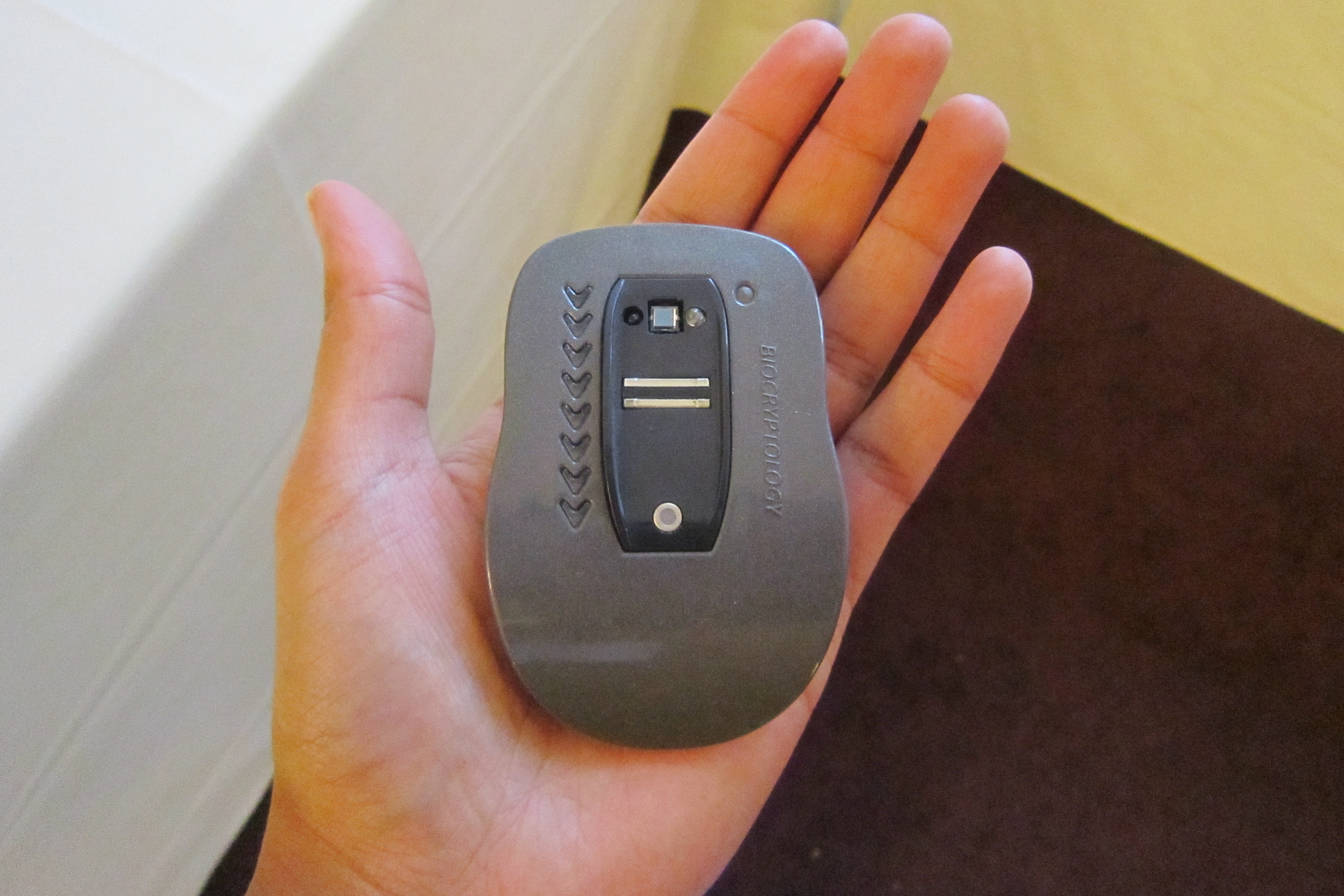Fingerprint-based biological cryptography tech could spell end to PIN codes
Breakthrough the technology equivalent of “curing cancer”, chairman claims.


Authentication technology firm Primary-Net has taken the wraps off its new fingerprint-based cryptographic technology.
Dubbed Biocryptology, the technology is currently being used in two devices the Nexus SmartPay and The Primary Pass, and was showcased during an event at the Science Museum in London earlier today.
Nexus SmartPay is a payment terminal alternative that chairman Klaas Zwart hopes could one day do away with credit and debit cards all together. Registered users insert their finger into a scanner on the unit, confirming their identity and authorising the transaction, rather than enter a traditional four digit PIN code.
The Primary Pass is approximately the size of a travel mouse, but in place of the scroll wheel there is a fingerprint scanner. Unlike the Nexus SmartPay, it is unique to each individual user and connects to their computer or laptop via a USB cable. It can be used to encrypt files and data on their device or in the cloud, or that they may like to send to a third party.
The Biocryptology technology is held uniquely on the device's chip and it is on the device, which has no operating system or other software, where the encryption takes place. Authentication confirmation and decryption takes place in one of the company's three datacentres, located in north and south Europe and South America.
This, Primary-Net claims, makes it far more secure than any alternative, as there is no way for the authentication data generated from the users' fingerprint to be intercepted or decrypted. Furthermore, Biocryptology checks for vital signs in the finger, making it impossible for a severed or replica finger to be used instead, the company claimed.
While the company uses proprietary encryption technology to safeguard the user's fingerprint details, as well as information such as their name, date of birth, nationality and sex, any file encryption uses standard SSL encryption technology.
Get the ITPro daily newsletter
Sign up today and you will receive a free copy of our Future Focus 2025 report - the leading guidance on AI, cybersecurity and other IT challenges as per 700+ senior executives
While Biocryptology is currently confined to just two devices, Zwart has great faith both in its potential.
"[The technology] we are revealing [is] something like the magnitude of a total cure for cancer...for the internet. We believe this is the most revolutionary security measure...since the creation of the internet," he said.
According to Zwart, Biocryptology technology could replace passports and ID cars, which could eliminate queues at airports. Further suggested uses were in place of driving licenses, and to quash benefit and healthcare fraud.
"We believe Biocryptology will change the world," Zwart said.
Chris Edwards, director of business development at Primary-Net did, however, acknowledge the biometric nature of the existing units is somewhat limited, as finger prints are not inherently unique and not everyone has them.
However, he and Zwart claimed the technology could be adapted to scan irises, for example, in the future.
The Nexus SmartPay is currently being trialled in Rapid City, USA, with approximately five hundred customers. No European tests have yet taken place.
IT Pro was awaiting confirmation of the per-unit price of the Nexus SmartPay and the Primary Pass, however Edwards said the subscription cost for use of the service is $3.99 per device per month.

Jane McCallion is Managing Editor of ITPro and ChannelPro, specializing in data centers, enterprise IT infrastructure, and cybersecurity. Before becoming Managing Editor, she held the role of Deputy Editor and, prior to that, Features Editor, managing a pool of freelance and internal writers, while continuing to specialize in enterprise IT infrastructure, and business strategy.
Prior to joining ITPro, Jane was a freelance business journalist writing as both Jane McCallion and Jane Bordenave for titles such as European CEO, World Finance, and Business Excellence Magazine.
-
 Cleo attack victim list grows as Hertz confirms customer data stolen
Cleo attack victim list grows as Hertz confirms customer data stolenNews Hertz has confirmed it suffered a data breach as a result of the Cleo zero-day vulnerability in late 2024, with the car rental giant warning that customer data was stolen.
By Ross Kelly
-
 Lateral moves in tech: Why leaders should support employee mobility
Lateral moves in tech: Why leaders should support employee mobilityIn-depth Encouraging staff to switch roles can have long-term benefits for skills in the tech sector
By Keri Allan